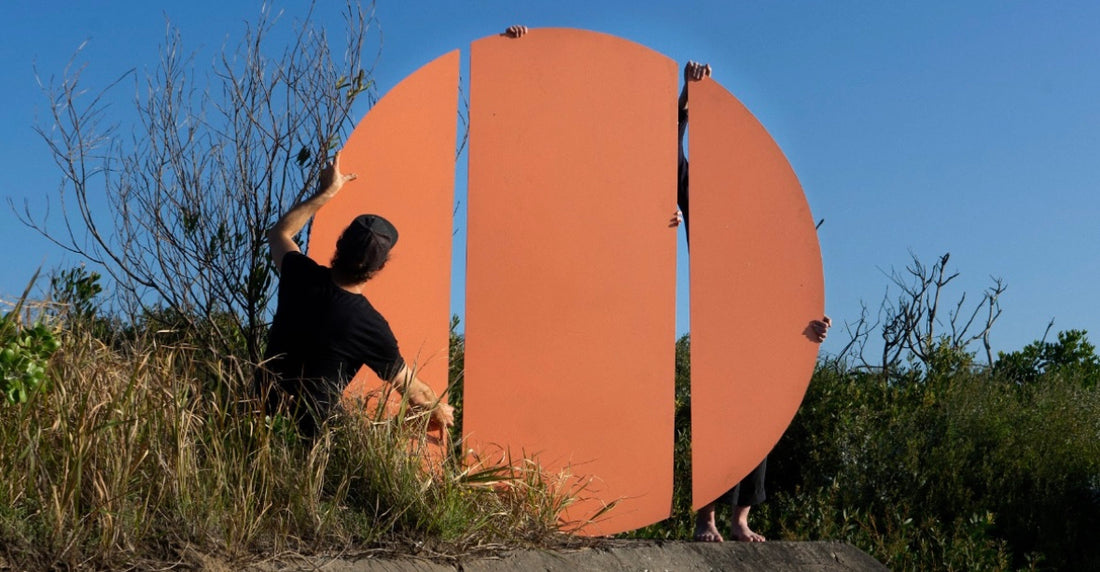OPENING NIGHT- SATURDAY THE 12TH OF NOVEMBER, 6PM TILL 8PM
SHOWING FROM THE 11TH TILL THE 20TH OF NOVEMBER, 2022
‘Counter Weight’ takes interest in the tolerance for grief and longing while
considering the passing of time relationally to the shape of healing. Reflections
from an autobiographical positioning, and a questioning of a White, Australian,
suburban/regional identity, the work is part of an ongoing exploration and
commitment to practice-led research.
considering the passing of time relationally to the shape of healing. Reflections
from an autobiographical positioning, and a questioning of a White, Australian,
suburban/regional identity, the work is part of an ongoing exploration and
commitment to practice-led research.
The works focus on a center point – a tipping point – while acknowledging the
extremities and complexities of the actions portrayed. Through performance and
composition, the work layers and distributes weight in different ways to view the
relationships between humans, objects, and landscape. Naylor documents and
places the human body as a witness of space, describing relationships between
the self, other humans, man-made and non-human entities. She hopes to reveal
memories of the body hidden in and evoked by disregarded places and
landscapes - making a temporary monument of rubble, of sand.
extremities and complexities of the actions portrayed. Through performance and
composition, the work layers and distributes weight in different ways to view the
relationships between humans, objects, and landscape. Naylor documents and
places the human body as a witness of space, describing relationships between
the self, other humans, man-made and non-human entities. She hopes to reveal
memories of the body hidden in and evoked by disregarded places and
landscapes - making a temporary monument of rubble, of sand.
The artist is interested in the impact, connection and danger presented by bodies
as they engage in physical, mundane and intimate acts. Each of these
relationships shares a common goal that imbues an undeniable physicality,
varying from situation to situation to describe the counterweight. Within the
works, there is a teetering between trust and vulnerability, violence and harm.
Naylor considers the ramifications of amplifying the bittersweetness of ‘private’,
‘inside’ processes of longing. The work seeks to consider these qualities when
presented as collective, public, and ‘outside’ concerns within the ‘Australian’
space. The works consider this dichotomy through the multifaceted use of
collage in an extended version. ‘Underwater’, for example, dislocates the idea of
the wildness of water by confining it within a formalist metal and plastic structure.
The installation has a mechanical paddle forcing the water into a replication of its
original form in the landscape –a ripple. The atmosphere will nonetheless be
present as a meditation, however far removed from the remedy of the ocean. The
artist has interpreted the shape of healing as durational, with an undisclosed end
date.
Ruins like the human body are a vessel and a paradox of the temporal and
historic, a memory of the past and a marker of the the passage of time. There is
a slippage of the original form that hints at the function and purpose of a structure
or a system of belief. These fractions are presented as collage, aesthetic
tensions of sentiment and rubble in the works. Like emotional anxieties, ruins
make attempts at predicting the future, one of inevitable death, decay, and
dismantling. The exhibition is a compilation of stills of imagined flashbacks, fast
forwards and replays as a way to hold time within the work.
There is an introduced artificial swelter in the show in the absence of felt heat, an
over-representation of the sun, to engender the familiar, ‘typical’ Australian
summer experience. To look into the sun or sum of one's grief leaves a
temporary ‘ blind spot’, an after-image of something damaging obscuring the
vision of the present. The culmination of performance, photography, spatial
installation and painting have cinematic qualities explaining this “blind spot” the
void. “Its not easy to live every moment wholly aware of death its like trying to
stare the sun in the face, you can stand only so much of it” - Irvin D. Yalom,
Staring at the Sun.
Naylor’s work inherently challenges the ‘site’ of the gallery and the ‘non-site’ of
abandoned locations. By using post-post-studio methodologies, Naylor questions society's validation of authority and hierarchy of place, resources, and expressions of outward positivity in the face of a constrasting reality. The body of work points to the reverse ruin of modern Australia, with particular attention paid to the shame surrounding mourning, set within the post-industrial and infrastructural landscape of Newcastle.
Written by- Bronte Naylor
Edited by- Julia Shaw

